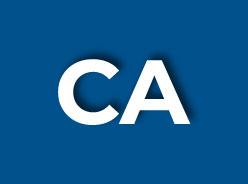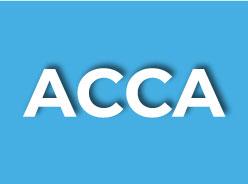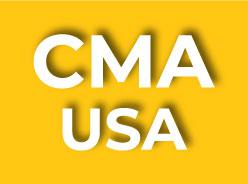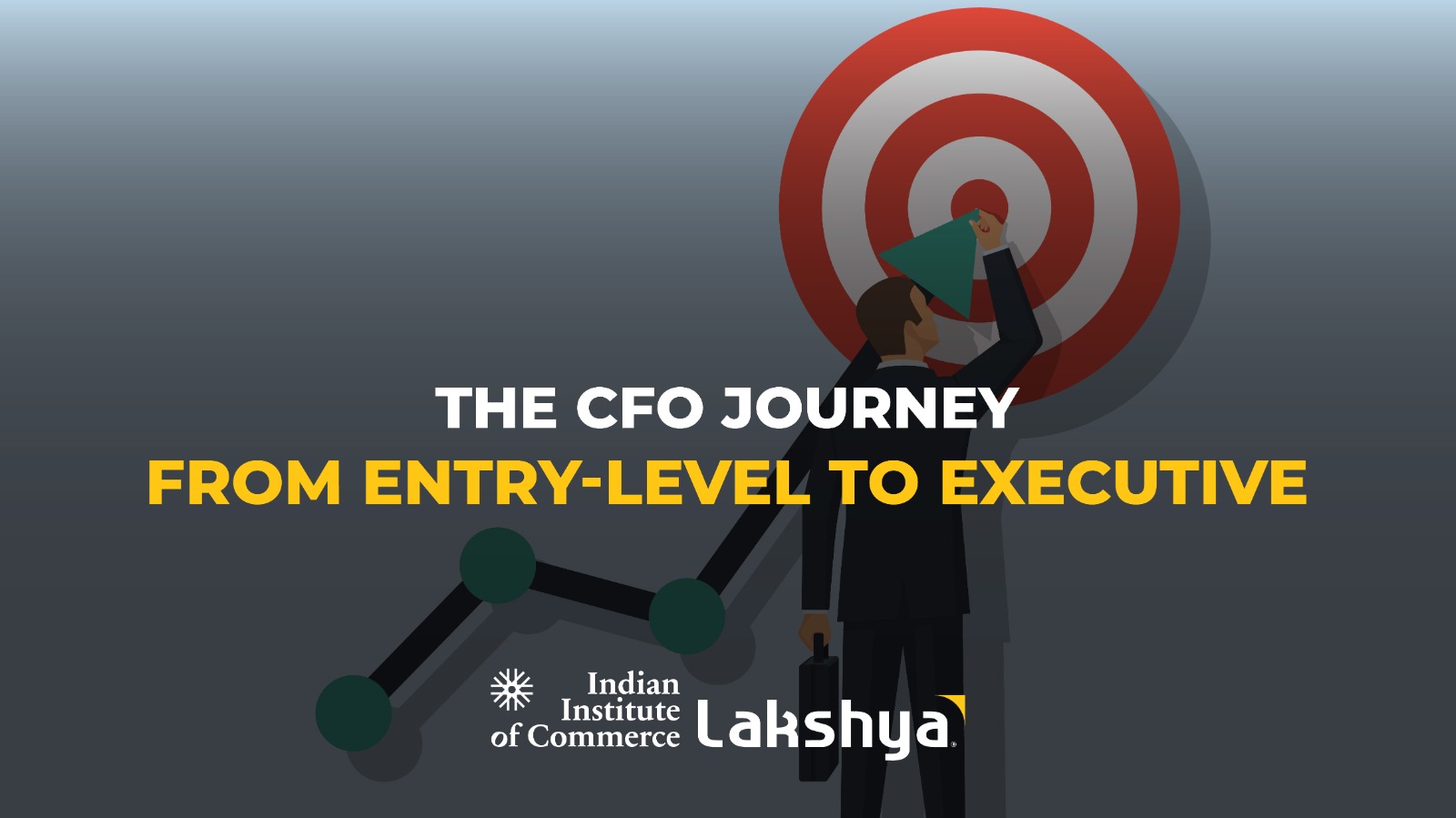The CFO Journey: From Entry-Level to Executive
In the intricate landscape of the corporate world, the role of a CFO (Chief Financial Officer) stands as a beacon of financial acumen and strategic insight. This blog serves as a guiding light, illuminating the path for aspiring professionals, and navigating them through the complexities from entry-level positions to the coveted executive role of a CFO.
Understanding the Role of a CFO
A CFO's Responsibilities: A CFO is the linchpin in an organization's financial machinery, responsible for more than just balancing the books. They orchestrate financial strategies, ensuring the company's fiscal health. From financial planning and analysis to risk management, a CFO's role is diverse and pivotal.
Skills and Qualifications: To excel in this multifaceted role, a CFO needs an arsenal of skills. Analytical acuity, strategic thinking, and adaptability are paramount. Furthermore, leadership qualities are non-negotiable. A successful CFO not only understands numbers but also people and market dynamics.
Impact on Financial Health: A CFO's decisions reverberate throughout the organization. By making informed choices on investments, cost management, and financial structures, they directly influence profitability and sustainability. Their insights are instrumental in steering the company toward growth even in turbulent times.
Starting the Journey: Entry-Level Positions in Finance
Exploring Entry-Level Positions: At the grassroots level, aspiring finance professionals often begin as financial analysts, junior accountants, or finance assistants. These roles serve as invaluable learning platforms, allowing individuals to grasp the basics of financial operations and reporting.
Securing Internships and Positions: Securing these positions requires more than just academic brilliance. Networking, both online and offline, plays a pivotal role. Internships provide hands-on experience, honing skills in financial modeling, data analysis, and report generation. Acquiring certifications like CPA (Certified Public Accountant) or ACCA (Association of Chartered Certified Accountants) enhances credibility.
Skills and Experiences: The entry-level phase is not just a learning curve; it's a crucible that forges essential skills. Attention to detail, time management, and proficiency in financial software are acquired here. Moreover, grasping the nuances of ethical financial practices is fundamental, setting the stage for ethical leadership in the future.
Advancing in the Finance Industry: Mid-Level Positions
Navigating Mid-Level Positions: As professionals climb the corporate ladder, they transition into roles like senior financial analysts, finance managers, and controllers. These roles demand a nuanced understanding of financial markets, regulations, and organizational dynamics. Financial modeling becomes complex, requiring a deep understanding of economic indicators and trends.
Skill Development and Networking: Mid-level professionals need to diversify their skill set. Leadership training becomes imperative, along with advanced proficiency in financial software and market analysis tools. Networking transforms from building contacts to nurturing professional relationships. Attending industry conferences and workshops hones expertise and fosters collaborations.
Specializing in Finance: Advanced Certifications and Degrees
Pursuing Advanced Certifications: For professionals eyeing executive roles, certifications like CFA (Chartered Financial Analyst) and an MBA (Master of Business Administration) with a finance specialization are transformative. CFA imparts in-depth knowledge in investment management, while an MBA offers a holistic understanding of business operations and strategic decision-making.
Benefits of Specialized Degrees: Specialized degrees serve as accelerators in the CFO journey. They provide exposure to real-world business scenarios, often through case studies and collaborative projects. Moreover, these programs facilitate networking with industry experts and alumni, broadening horizons and opening doors to high-profile positions.
Transitioning to Executive Roles: CFO Preparation
Essential Skills for Aspiring CFOs: Beyond financial expertise, aspiring CFOs must cultivate leadership skills. Strategic thinking involves foreseeing market trends, evaluating risks, and formulating financial strategies aligned with the company's vision. Effective communication, both verbal and written, is indispensable. CFOs often translate complex financial jargon into clear, actionable insights for stakeholders.
Mentorship and Professional Guidance: Mentorship is a game-changer. Seeking guidance from seasoned CFOs and industry leaders provides invaluable insights. Mentors offer perspectives on corporate governance, ethical dilemmas, and crisis management. They also serve as advocates, endorsing mentees for executive roles and board positions.
How to Become a CFO: A Strategic Roadmap
Becoming a CFO (Chief Financial Officer) is the pinnacle of achievement in the finance industry. It demands a strategic approach, relentless dedication, and a blend of technical expertise and leadership acumen. Here's a comprehensive roadmap to guide aspiring professionals on their journey to becoming a CFO.
1. Educational Foundation: Begin with a strong educational background. Pursue a bachelor’s degree in finance, accounting, or a related field. Post-graduation, consider obtaining advanced degrees such as an MBA with a finance specialization. These degrees lay a robust foundation of knowledge essential for financial leadership roles.
2. Professional Certifications: Acquire relevant certifications like CPA (Certified Public Accountant), CFA (Chartered Financial Analyst), or ACCA (Association of Chartered Certified Accountants). These certifications enhance your credibility and demonstrate your expertise in specialized areas of finance.
3. Gain Practical Experience: Secure internships and entry-level positions in finance. Practical experience hones your skills, providing hands-on exposure to financial analysis, budgeting, and strategic planning. Early exposure to diverse financial scenarios prepares you for the challenges of higher roles.
4. Master Financial Technology: Stay abreast of technological advancements in financial software and data analytics tools. Proficiency in financial technology not only streamlines financial operations but also demonstrates your adaptability, a crucial trait for CFOs navigating the ever-changing financial landscape.
5. Develop Leadership Skills: Cultivate leadership qualities through mentorship, training programs, and real-world experiences. Effective communication, decision-making, and team management are vital skills for a CFO. Actively seek leadership roles in projects and initiatives to showcase your abilities.
6. Specialize and Network:Consider specializing in a niche area within finance, such as mergers and acquisitions, risk management, or corporate finance. Specialization sets you apart and positions you as an expert in your field. Simultaneously, build a robust professional network. Attend industry conferences, join professional associations, and engage in online forums. Networking not only opens doors but also provides valuable insights and mentorship opportunities.
7. Pursue Advanced Degrees: Consider pursuing a doctoral degree (Ph.D.) in finance, economics, or a related field. Doctoral degrees are highly regarded and can lead to academic positions, research opportunities, and executive-level roles in large corporations.
8. Demonstrate Strategic Thinking: Develop a strategic mindset by understanding market trends, competitive analysis, and financial modeling. CFOs are strategic advisors, guiding companies through growth initiatives, mergers, and financial restructuring. Demonstrate your ability to think critically about long-term financial implications and articulate your strategic vision.
9. Embrace Ethical Leadership: Uphold ethical standards in all your professional endeavors. Ethical leadership is not only morally imperative but also a fundamental requirement for executive roles. Upholding integrity builds trust with stakeholders, an invaluable asset for a CFO.
10. Continuous Learning and Adaptation: The financial landscape evolves rapidly. Stay updated with industry trends, regulatory changes, and emerging technologies. Engage in continuous learning through online courses, workshops, and industry publications. The ability to adapt to changing circumstances and incorporate new knowledge into decision-making processes is a hallmark of a successful CFO.
By following this strategic roadmap, aspiring professionals can navigate the intricate path to becoming a CFO. It's a journey that demands continuous learning, unwavering determination, and a commitment to ethical leadership. Embrace challenges as opportunities for growth, and remember, the CFO role is not just a destination; it's a culmination of a strategic and enriching journey.
Networking and Industry Involvement
Significance of Networking: Networking evolves into relationship management at the executive level. CFOs engage in strategic alliances with peers, industry experts, and policymakers. Professional associations like AICPA (American Institute of Certified Public Accountants) and ICAEW (Institute of Chartered Accountants in England and Wales) offer platforms for collaboration and advocacy.
Role of Mentorship: At the executive echelon, mentorship takes on a reciprocal dimension. Experienced CFOs mentor emerging leaders while also seeking guidance from their peers. Peer mentoring fosters a culture of collective growth, where knowledge sharing becomes a cornerstone of professional development.
Achieving the Executive Status: Becoming a CFO
Final Steps in the CFO Journey: The culmination of the CFO journey involves meticulous preparation. Crafting a compelling resume that showcases achievements, leadership roles, and industry recognitions is paramount. Executive recruiters and boards seek candidates with a proven track record in financial leadership, innovation, and stakeholder engagement.
Negotiating Job Offers: Negotiating executive job offers requires finesse. CFO candidates must articulate their value proposition concisely. They should emphasize their ability to drive financial growth, navigate regulatory challenges, and foster a culture of financial integrity within the organization. Aligning personal aspirations with the company's strategic vision is pivotal, ensuring a seamless transition into the new role.
Conclusion
In conclusion, the journey from an entry-level finance position to the role of a CFO is transformative and multifaceted. It demands continuous learning, adaptability, and a keen sense of market dynamics. Embracing challenges as opportunities, cultivating a diverse skill set, and building robust professional relationships are the cornerstones of this odyssey.

 ABOUT LAKSHYA
ABOUT LAKSHYA  WHY CHOOSE LAKSHYA
WHY CHOOSE LAKSHYA  MISSION AND VISION
MISSION AND VISION  CHARTERED ACCOUNTANCY (CA)
CHARTERED ACCOUNTANCY (CA)  ACCA
ACCA  CMA-USA
CMA-USA  RESULTS
RESULTS 


